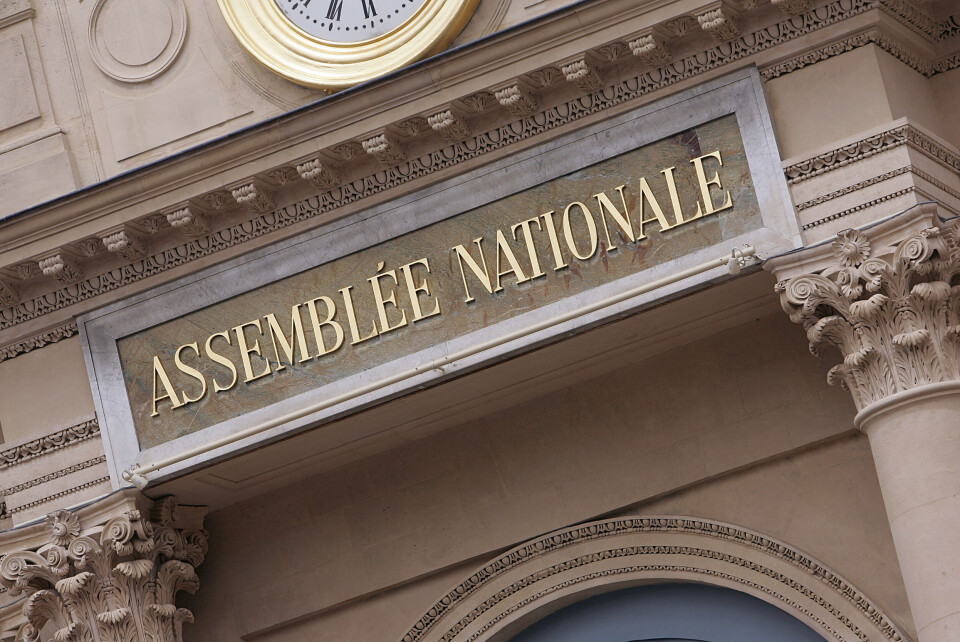-
Vanessa Paradis’ former French home for sale - at half price it was once valued at
Mill property has been left abandoned for several years
-
Flashes return on French speed cameras
The government says that flashes are a ‘good educational tool’
-
Ryanair to end all Clermont-Ferrand flights, including UK route
Seasonal route to London-Stansted will not return this summer
No confidence motion after French government forces through new budget
Article 49.3 was triggered ending the need for an MP vote on the subject. Minister defends budget by referring to financial risks caused by policies in the UK

A motion of no confidence in the French government has been put forward by the left-wing Nupes coalition of parties after the government used article 49.3 of the Constitution to unilaterally pass its budget through parliament without a vote.
Read more: Article 49.3: French government prepares to push budget through today
Read more: Explainer: what is France’s article 49.3 and why is it in the news?
La France Insoumise MP Alexis Corbière, who forms part of the Nupes alliance, said on Sunday (October 16) that the motion was already “ready and signed”, as the government prepared to trigger article 49.3.
If an absolute majority of MPs – 289 – vote in favour of a no confidence motion, the prime minister and their government must resign.
It is unlikely that this will happen this time, as Nupes only has 151 MPs, but the motion enables the coalition to position itself as the primary opposition force within parliament in a week when the country is impacted by refinery and other strikes.
Nupes’ motion makes reference to the “political fragility” of the government and its “contempt for national representation”, adding that the fact that ministers have resorted to using article 49.3 “confirms the impasse faced by the executive”.
“With its recourse to 49.3, the government is brushing aside the parliamentary debates which have taken place and enabled the adoption – against its will – of important amendments such as taxes on super-dividends.”
What about other French parties?
Far-right party Rassemblement National is also expected to put forward its own motion of no confidence, and will not vote for that issued by Nupes.
Fabien Roussel of the Communist Party has also said that he would not vote for a motion produced by Rassemblement National, but other Nupes MPs have been less clear on what they would do.
“We must see, we must discuss it,” Clémence Guetté, vice president of La France Insoumise in the Assemblée nationale has said. “But I think that it would make little sense to not oppose with all the means at our disposal this policy led by [Prime Minister Élisabeth] Borne.”
Around 100 amendments retained
Public Accounts Minister Gabriel Attal has told Le Figaro that when drafting the budget bill he wanted to “do everything to avoid” having to trigger article 49.3, but “I have no regrets: never has a budget been discussed so much ahead of parliamentary debates.
“But unfortunately, the opposition remains in a form of blockade, more for symbolic political reasons than for the public interest.”
Mr Attal added that of the 3,400 amendments proposed by opposition parties, “around 100” have been retained in the final version of the bill.
“Of the €700million in new spending, half was proposed by the parliamentary majority and the other half by opposition parties.
“It is coherent with our aims: valuing work, acting for solidarity, without increasing taxes.”
Additional help for workers
Mr Attal said that in order to support working parents, tax credits for childcare services would be raised to a maximum of €3,500 (from €2,300 currently), as the result of an amendment coming from the Renaissance group. The estimated cost of this is €200million.
A Les Républicains amendment calling for the tickets restaurant (luncheon vouchers for workers) values to be increased and for the part of them which is tax and social charge free to rise has also been maintained.
The amendment is to increase the daily value to €13 (from the current €11.84)
Currently the value has to be between €9.87 and €11.84 for the employer to benefit from the maximum exemption from employer charges (€5.92 per day). The aim is to encourage employers to increase the amount of tickets restaurant distributed to workers. The estimated cost of this is €120million.
Mr Attal added that this additional spending has been costed by the government, which allowed a margin for changes made during parliamentary debates that would still keep the deficit to 5%.
“We have protected public finances when opposition parties were proposing several tens of billions of euros in additional spending! We are seeing it in the UK: allowing public spending to slide or losing revenue translates to a risk of financial crisis.”
Mr Attal said that he was “curious” to see whether Nupes, Rassemblement National and Les Républicains would be able to unite in opposing the government through a no confidence motion “when they spend most of their time explaining to us that they are different.”
Related articles
French cabinet approves right to use 49.3 rule to ease budget deadlock
‘We must learn to govern differently’: Key points of Macron’s TV talk
Inflation, climate, pensions: a tough ‘rentrée’ for French government
























